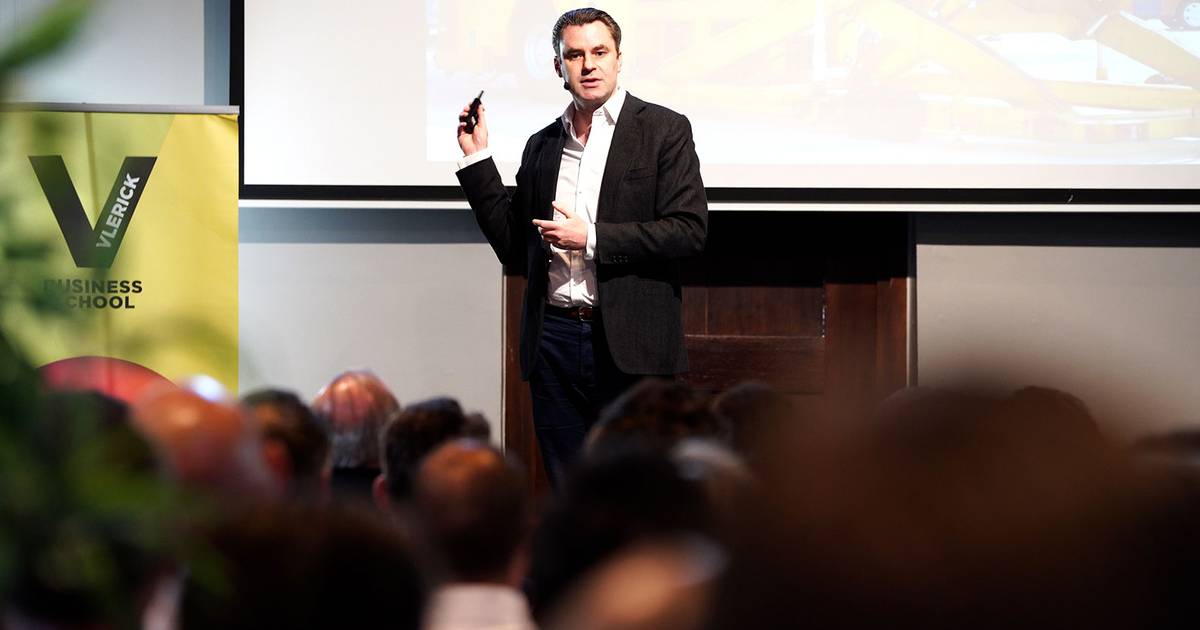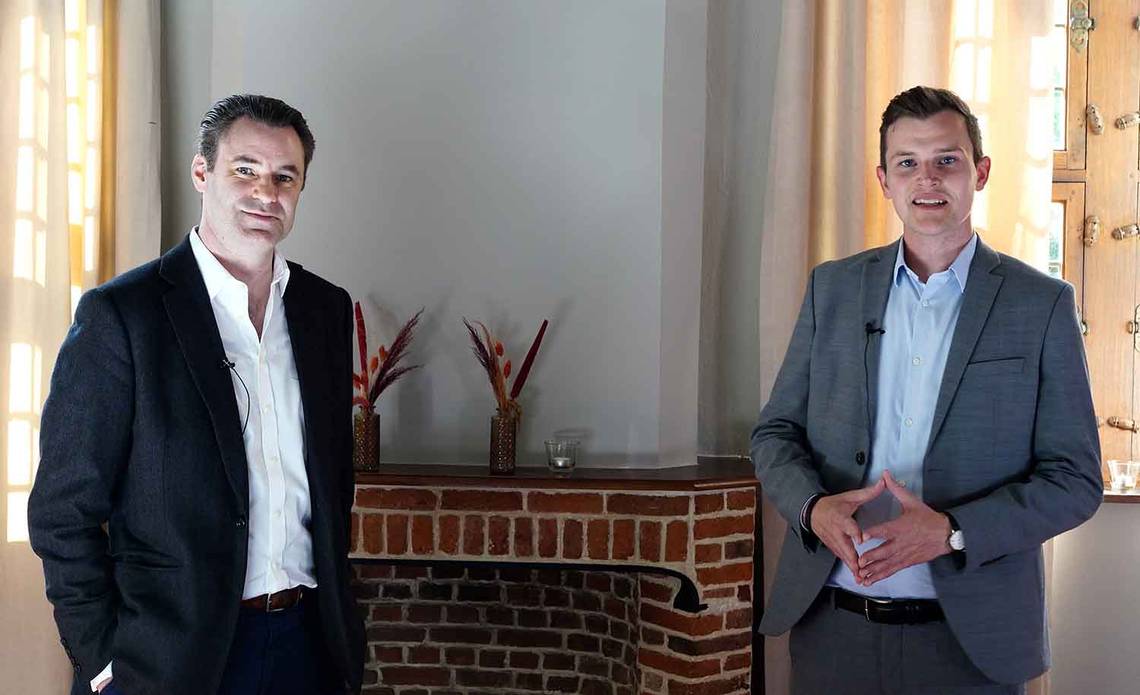Hiring and recruiting in a growth stage business
Vlerick Insight Talks: Professor Yannick Dillen interviews entrepreneur Greg Marsh
By Yannick Dillen
Professor of Management Practice

Hiring is the most important process in any growing company. It includes not only hiring but interviewing candidates and refining the process itself as well. It takes a lot of time, and it never stops. At the 2022 iGMO Summit, an annual event for members of the Impulse Centre ‘Growth management for medium-sized enterprises’ (iGMO), guest speaker Greg Marsh gave a presentation on this topic. Greg is a seasoned entrepreneur, investor and senior lecturer at Harvard Business School. He successfully founded and managed Onefinestay, a pioneering luxury hospitality business. Having scaled the business to an international team of over 700, the company was acquired by AccorHotels in 2016. Yannick Dillen, Professor of Entrepreneurship at Vlerick Business School, spoke with him on start-ups and the process of entrepreneurship.

Hiring and recruiting in a growth stage business
Hiring is the most important process in any growing company. At the 2022 iGMO Summit, entrepreneur and investor Greg Marsh gave a presentation on the importance of people in entrepreneurship. In this Insight Talks video, Professor Yannick Dillen interviews him on start-ups and the process of entrepreneurship.
What advice would you give to first-time founders these days?
Greg Marsh: “It’s going to be tough. The markets for early-stage capital financing are getting much tougher than they were. I've seen venture capital firms be much more discerning about growth round valuations and being much more selective about the businesses they choose to finance, which means, essentially, that there's going to be a very difficult proving ground for first-time founders in particular, but even for proven entrepreneurs as well. That said, history tells us that many of the most successful businesses were built during periods of economic challenge. Businesses such as Amazon survived those early difficult years, those lean years, and had to develop the same competencies of frugality and ingenuity. And ultimately, there are still investors writing checks. One of the bizarre experiences of this market is that, while the public market valuations have fallen, there's an enormous amount of capital still in the hands of limited partners and general partners. Marc Andreessen's firm and Ben Horowitz's firm just closed a $4.5 billion investment fund for cryptocurrency investments at precisely the moment that those investments are unfashionable. The returns on that fund might end up being extraordinarily good because the companies they do choose to invest in will have an empty field to win.”
And how long do you think this downturn can last, in view of similar past situations?
“The advice that investors are giving their portfolio CEOs at the moment is to make sure you have enough cash for at least a couple of years of operation. Because it could well be that for the next 6 to 12, even 18 months, investor sentiment is sour. And the reason sentiment matters is that investors are humans. And if they've had a negative experience, if some of their companies are struggling, if they're having to use their resources to prop up businesses that are in distress, they're going to be that much more distracted and that much less focused on new business inception and new business investments. So make sure you have enough cash to survive the really tough sentiment downturn. As the markets start to improve – and they always do over time – it’s going to be really interesting for the better businesses to raise cash and scale.”
What is your take on the process of founders changing roles when their company is growing?
“The hardest challenge for many founder CEOs is that they've never learned how to be a CEO. Unfortunately, this is not a job you get taught how to do. And sometimes you learn the expensive way, by making many mistakes. If you're lucky, you've got a supportive board. If you're really lucky, you have great co-founders who can give you feedback and help you feel supported in your journey as a chief executive. But this is a very bumpy ride for most people. However, not every founder chief executive is going to remain CEO throughout. Some of the most successful founders have handed over the reins for the day-to-day management of their business to somebody else as it becomes larger and more successful. In a way, it's a sign of success. If the business is large enough that you can bring in a professional manager to run the company, it's begun to institutionalise. And eventually, we all want these companies to become independent and autonomous. So it's something to welcome, but it's also something that many founders and first-time CEOs are scared of. My advice? Make sure you get really good mentors around you. Make sure you have supportive board members who can help you on that journey. And make sure that you continue to read those management books and continue to think about yourself as a professional manager. It is not the same skill as founding a business, but it is a good skill to have as you get older and more experienced.”
At what stage would you advise this transition? Rather sooner than later, I guess.
“Many investors will say that the best person to run a business is the founder of the company, even if they're not the best chief executive on paper. It’s because they have a moral authority in the business that they build. And so, for as long as you're enjoying it, for as long as you feel you're effective, stick with it. But recognise that, as a company comes to have 100, 200 employees, the skills that are required from you as the leader are very different. You have an opinion about the product, but you no longer get to have an individual contributor role. A lot of your work has to be done through other people. A lot more of your impact on the business has to be indirect and influential rather than hands-on. And that is a difficult transition for many people. Some people make it, and some don't.”
In many countries, we mainly have traditional SMEs. What can they learn from start-ups, that have the ambition to grow very fast?
“I don't think it's a one-way street. There are things to learn on both sides. Something that businesses financed by the American capital model of early-stage venture capital get right, is a relentless focus on the quality of the people. The difference between a good business and a great business is all in whether the people who work there are the very best they can be. Really good businesses also have distinctive cultures. They have really high-quality training programmes. They have the ability to attract and retain really talented people. So it's not just that you get good people, pay them a lot and expect them to do great work. They have to have meaning and purpose in the work that they do. If there's one lesson that more traditional SMEs could take from that American venture capital model, it would be understanding what it takes to hire and retain the truly astonishing people, the best graduates from universities, the best engineers, the ones who could go and work in the technology sector at Google or Facebook. Think hard about what you could offer them because the answer is they may well value a lot of the things they could learn from your environment, but you will learn a lot from them if you can bring them on board.”
You have been investing in a lot of companies in the past and still do. What is for you the one thing that you look at when investing in a start-up?
It's people, which is the obvious answer. Of course, I want to see that there is the potential for a large market. I want to see that there's a product which meets a need. Ideally, you want to see some early traction or validation of that product market need. But those are hygiene factors. The thing that actually gets me excited, is seeing really good people. From an investment perspective, I have always followed the careers of some of the people who worked at Onefinestay. That alumni group, that diaspora has gone out and built some fantastic companies. My co-founder Evan has just capitalised his business Fora Financial in New York. Sten Saar heads the firm Zego, which is valued most recently at nearly $1 billion. About five or six other really successful companies have been founded out of the founding and early management team at Onefinestay. Why? I know those people. They're great people, and I'll follow them wherever they go.
So more than anything else, it's the people. And if you see a really, really great individual who passionately believes in what they're doing and has the wind in their sails, it's a joy to help them. Sometimes it succeeds and sometimes it doesn't.”
Even when those individuals are still very young and don’t have that track record yet?
“Track record is a catch-22 because, on the one hand, you want people who've been there and done that. But someone who's no longer hungry is a disaster. So they've got to have a hunger. They've got to have a fire in their belly, or they're not going to run hard, and they're not going to make the hard trade-offs, and they're not going to put the extra hours in. So of course, you want someone who's young but not too young, experienced but not too experienced. They mainly need to be hungry.”
